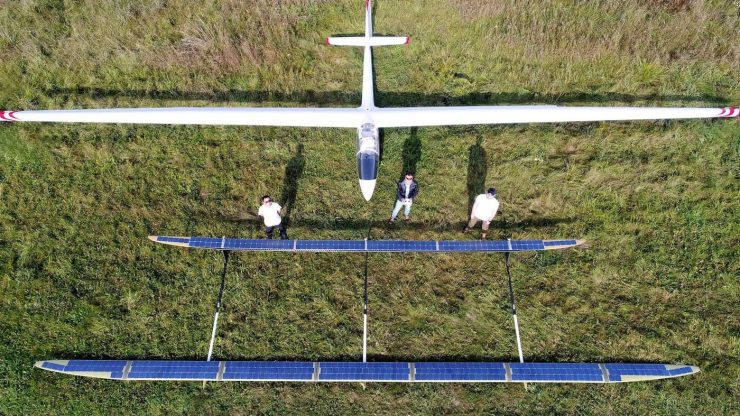Unmanned vehicle specialist UAVOS has joined the High Altitude Platform Station (HAPS) industry Alliance to promote the use of high-altitude solar-powered autonomous aircraft for facilitating global research missions, communication, connectivity, intelligence, surveillance and reconnaissance from the stratosphere.
According to the company press release, UAVOS has joined the HAPS Alliance to collaborate with member companies towards accelerating the development and adoption of HAPS technology into the evolution of the high-altitude unmanned platforms market. UAVOS’s HAPS knowledge is based on test flights for more than 1,000 hours of HAPS flight tests at altitudes of up to 66,000 ft (20,000 m). The ApusDuo project is the second generation of UAVOS’ HAPS solar airplane.
HAPS platforms are autonomous, high-altitude, ultra-long endurance aircraft powered by solar energy which are designed to boost internet connectivity worldwide, to provide a long continuous monitoring of the Earth’s surface, to create a network of autonomous repeaters and high speed data signals. High altitude unmanned platforms operate in the stratosphere which is above ground infrastructure but below satellites, allowing for near ubiquitous coverage, which avoids ground clutter and significant latency issues.
The HAPS Alliance, originally an initiative from HAPSMobile and Loon, has members from the leading companies across the aerospace, technology and telecom industries. The aim of the HAPS Alliance is to advocate business development for HAPS with authorities. Apart from liaising with industry organisations including standards and regulatory authorities, the members also work to accelerate the development and commercial adoption of HAPS technology.
Aliaksei Stratsilatau, UAVOS Lead Developer said: “We are excited to be a part of the HAPS Alliance and we look forward to the cross-industry cooperation that will foster adoption of new technology created by UAVOS team. Having an aircraft which is flight proven we hope that our considerable experience in the field of solar powered aircraft will help to make the next steps in the evolution of the HAPS market”.
For more information visit:




